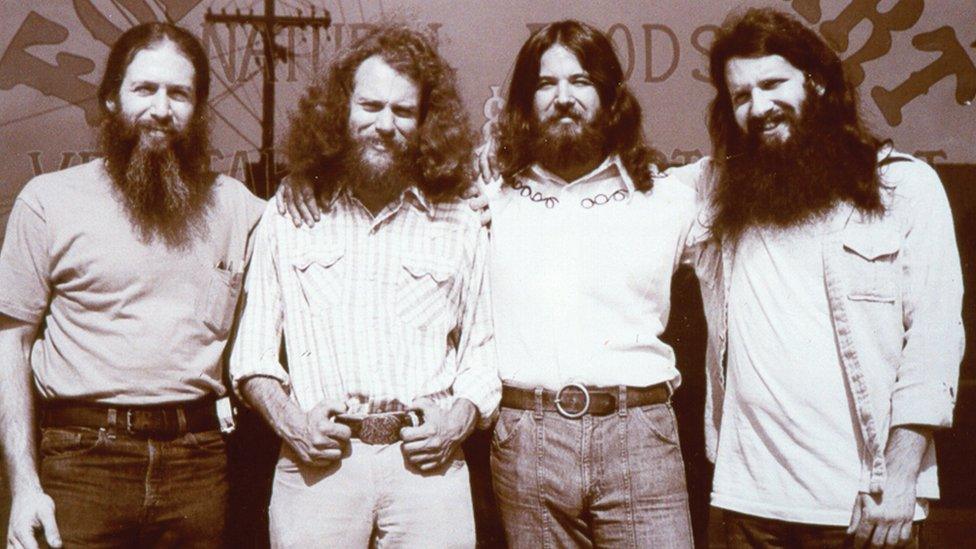Why I gave up being vegan
- Published
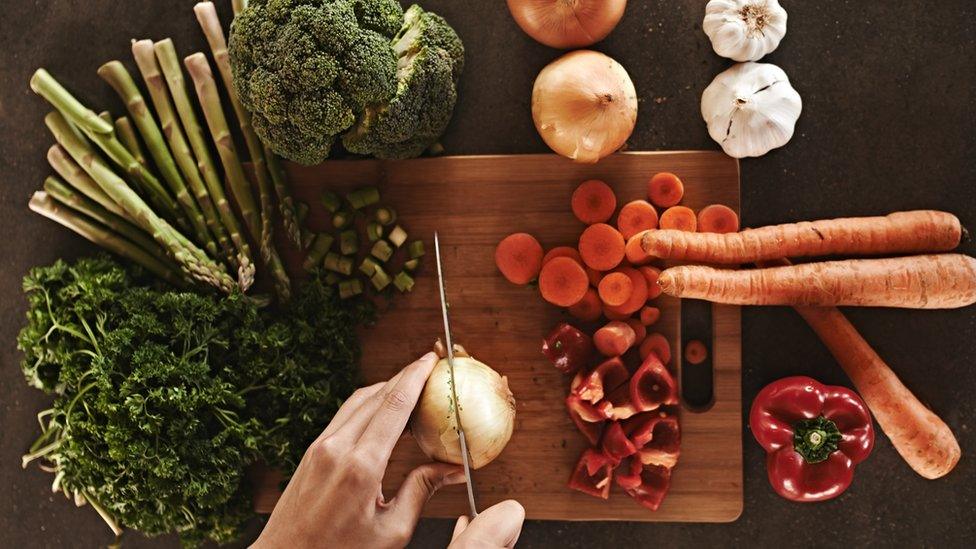
Why are some people coming back from a vegan diet?
"Vegan food has got so much better in recent years," according to Jeremy Corbyn.
The Labour leader says "more and more" of his friends are choosing the diet, which excludes all food that comes from animals - such as meat, dairy and eggs.
And whilst cheese may be keeping him from fully committing, he is "going through the process" of making different food choices.
But whilst some people are happy to go the whole hog - and leave the hog behind them - some vegans are making the choice to return to the meat market.
'The moral choice'
John Nicholson and his partner became vegans in 1984, at the age of 23, when living on a farm in the north of Scotland.
But 26 years later, the couple decided to return to eating meat for what they believed was the good of their health.
"We used to see the cattle being taken away to go to the slaughter house and the both of us thought we should stop," he said.
"Back then, we really did have to research what to eat.
"We started looking at Eastern and Indian food and were really expanding our cultural horizons from our bringing-up in the North East.
"And soon after, the government came out to speak about healthy eating - which it hadn't really before - so we thought, great, we are taking the moral choice and the healthy choice."
'Back to basics'
But as the years went by, the couple saw their health deteriorate and wondered what might be the cause.
"I suffered from IBS (irritable bowel syndrome) for 17 years," said John.
"Every time I ate, my stomach would get distended and it would be like a shelf you could put your glass on.
"Anything I ate would then leave me very quickly and some days it was so bad that I couldn't leave the house."
He also started to put on a lot of weight - standing at 5ft 10in (1.78m) but weighing 15st - and had the "highest cholesterol in North Yorkshire", according to his GP.
At the same time, his partner was suffering with depression and a slow thyroid, and they both wanted to make a change.
"She said to me it was not what we were eating, but what we weren't eating, and making that change might make a difference.
"I was very cynical about it, but I wanted to support her."
The impact was almost immediate. Within 48 hours, John started to feel better and his IBS all but disappeared, and, for his partner, there was a marked improvement.
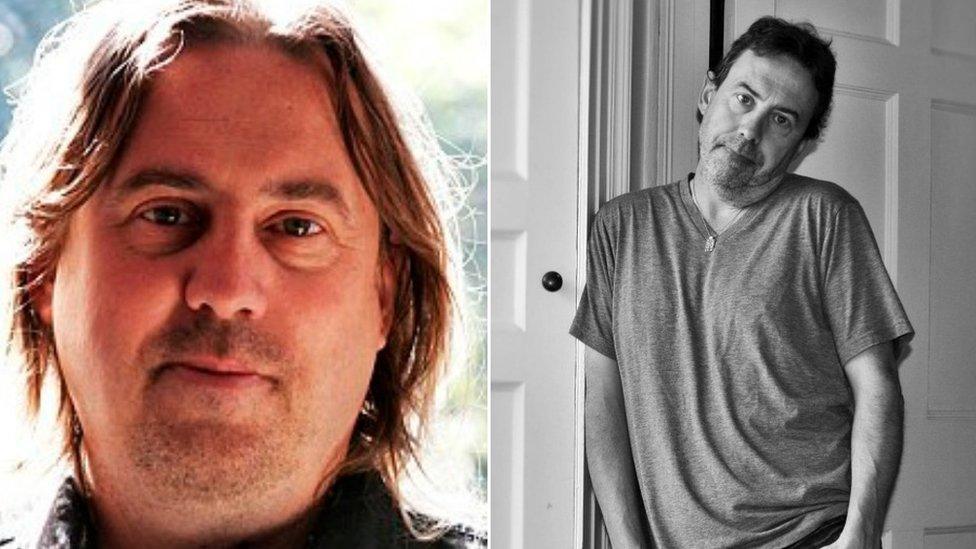
John Nicholson in 2010 whilst he was a vegan (left), compared with after he returned to eating meat
"When you have been a vegan for 26 years, it becomes part of your identity," he said.
"I was worried that I must have been shallow, but me and my partner had talked long into the night about it and we just came to the decision that we wanted to put our health above that of the animals."
The pair are still against industrial farming practices and ethically source their meat from farms, choosing free range and organic produce.
"I think about what my grandma would have said to people being vegan," said John. "She would have called it self-indulgent nonsense.
"But her generation knew how to feed themselves for where they were from and how they were made. Who am I to go against these generations of wisdom?
"What we are doing here is just going back to how things used to be before we got funny about our food and before processed food."
Dairy sensitivity
Estelle Silver had been a vegan for eight years before she made the switch back to eating meat. Little did she know it would also seem to help with her health problems.
"I went vegan because I was told I had a dairy sensitivity," she said.
"I had already been a strict vegetarian for 20 years and had wanted to become vegan anyway due to my feelings about animal abuse and farming methods, so it was a convenient excuse for me to take that final step."
To start with, Estelle was pleased with the effects as it helped clear up her skin - a problem she had faced since her 20s - but as time went on, she became tired, less able to cope with stress and developed anxiety.
"I became a bag of nerves whenever I went out and could barely speak to people, just clinging to my then-boyfriend all night," she said.
"I didn't make the connection with diet and so I stuck with it because ethically I felt so much better not supporting the animal food industry, and I had convinced myself that it was a healthy diet."
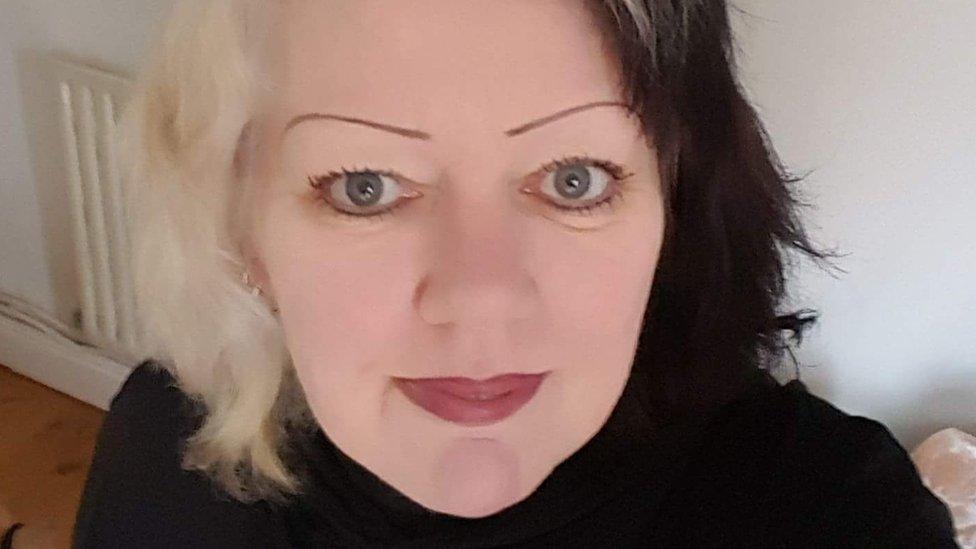
Estelle Silver went vegan after she was told she had a dairy sensitivity
Eight years on, Estelle began craving meat and fish, and she started to have "little cheat treats".
"It was like my body was really grateful and I felt better every time I ate a bit of meat," she said.
Later that year, she was diagnosed with chronic fatigue syndrome and myalgic encephalomyelitis (ME), and a support group told her eating meat and fish would help her symptoms.
"Since then my health has improved hugely and my anxiety has completely gone," said Estelle.
"From an ethical point of view, I wish I could live without animal products, but I no longer believe that a vegan diet is a healthy one - my body just can't cope with it."
'All in the planning'
According to the NHS, external, vegans should be able to get all the nutrients they need if they eat a varied and balanced diet, and plan ahead.
It suggests eating your five a day, basing meals on starchy carbohydrates - such as potatoes, rice and pasta - and having dairy alternatives, like soya drinks.
But without monitoring what you eat, the NHS said vegans could miss out on important dietary elements, such as calcium, iron and B12.
Heather Russell, a dietitian with the Vegan Society, said the group was working with the British Dietetic Association to get the message of planning out to people.
"As a vegan, you can enjoy delicious and nutritious food whilst making a really compassionate lifestyle choice," she said.
"It is possible to get all the nutrients your body needs from a vegan diet.
"If you need individual support regarding your vegan diet, it's a good idea to ask your doctor for a referral to a dietitian."
'Sharper and calmer'
For Carrie Eddins, she believes her change in diet has improved her life.
She has been a vegetarian since she was 10, but 18 months ago, at the age of 40, she decided to go vegan.
"I decided to make the change because the dairy industry upsets me and broke my heart," she said. "And I was feeling sluggish from milk, and eggs."
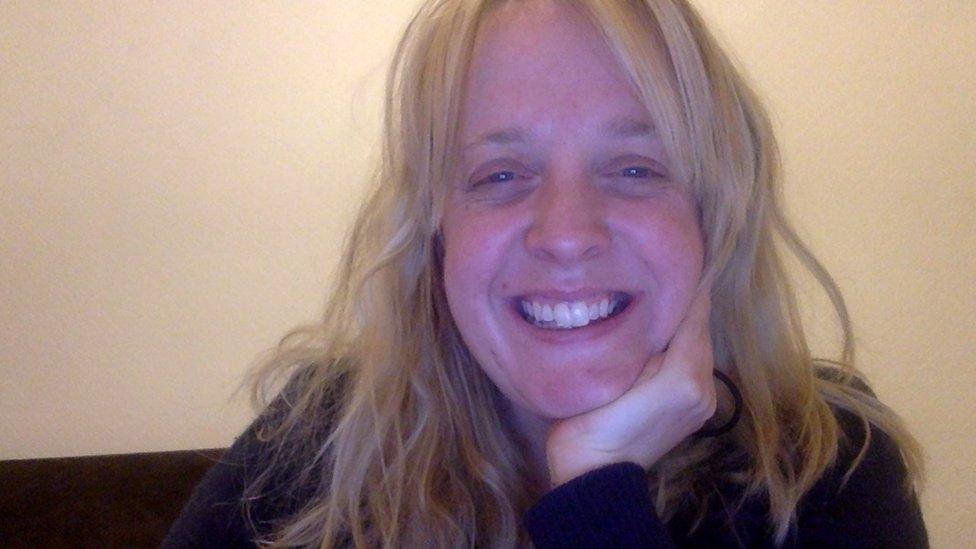
Carrie Eddins says she feels "sharper and calmer" after going vegan
Since cutting these out of her diet, Carrie said she has "never felt better", with improved digestion and a feeling that she is "sharper" and "calmer."
Carrie now has to check menus more and carry around a pot of coconut oil to use as butter.
When first making the change, she also admitted she felt very tired and had to have B12 vitamin patches to "balance the system out".
"But it works like a charm," said Carrie, "much better than coffee."
- Published5 September 2017
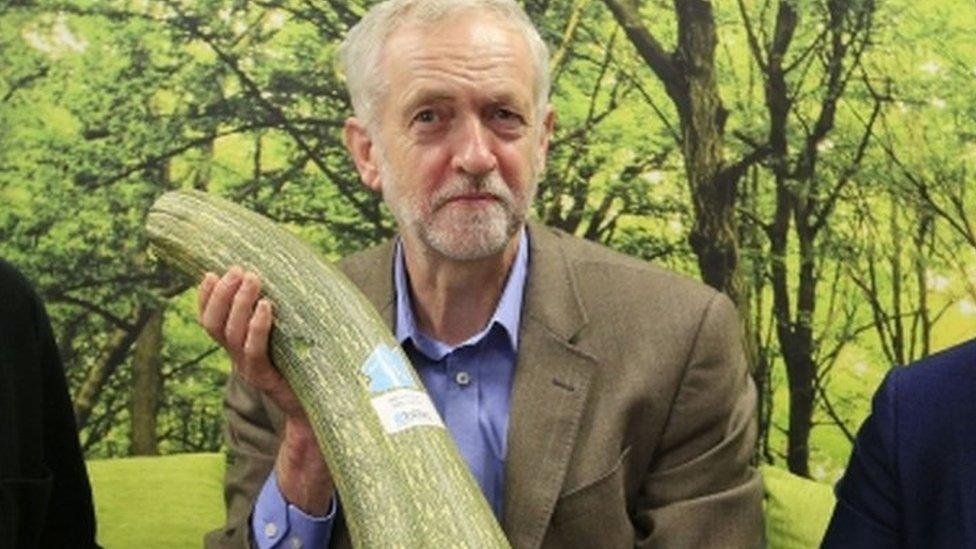
- Published4 January 2017
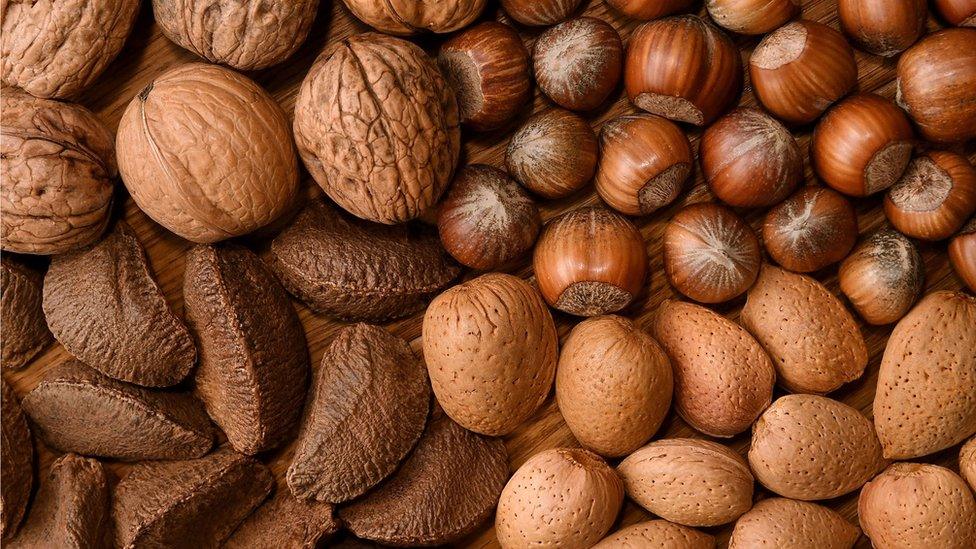
- Published19 January 2017
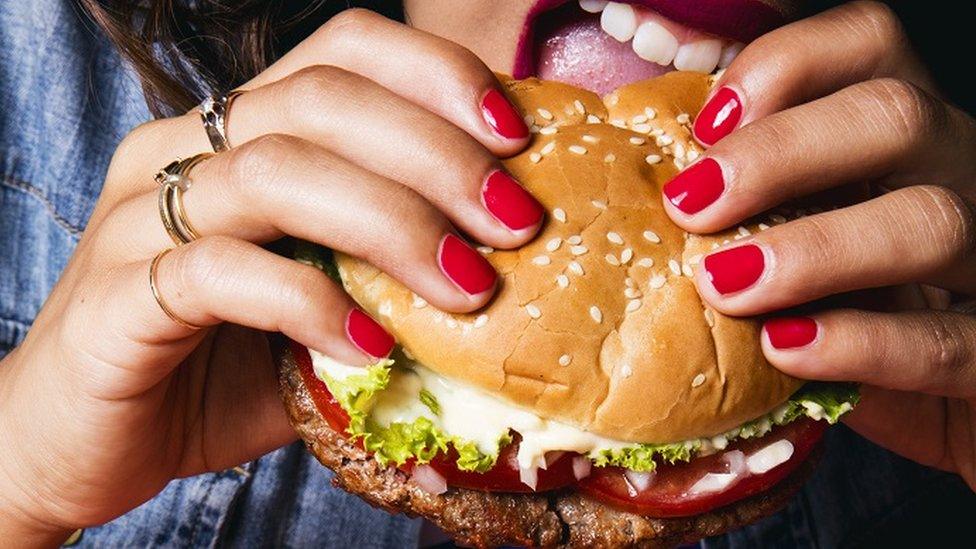
- Published19 December 2016
